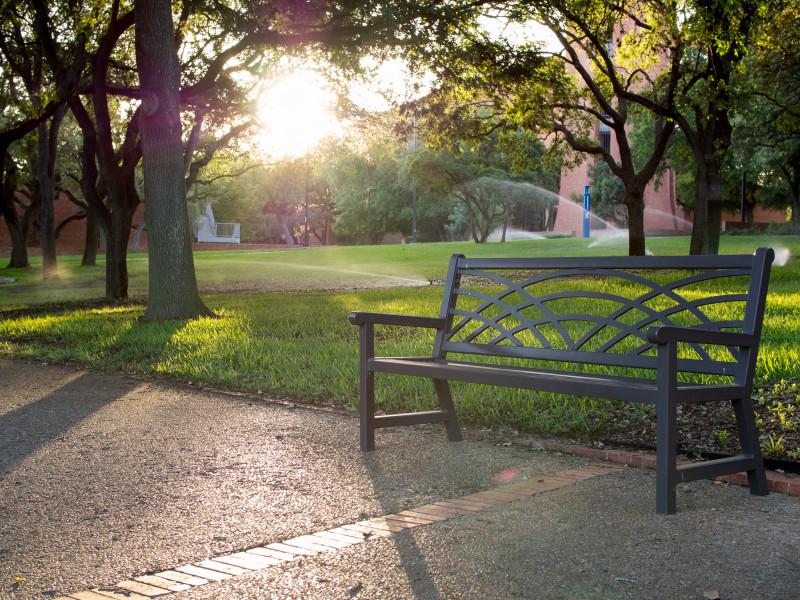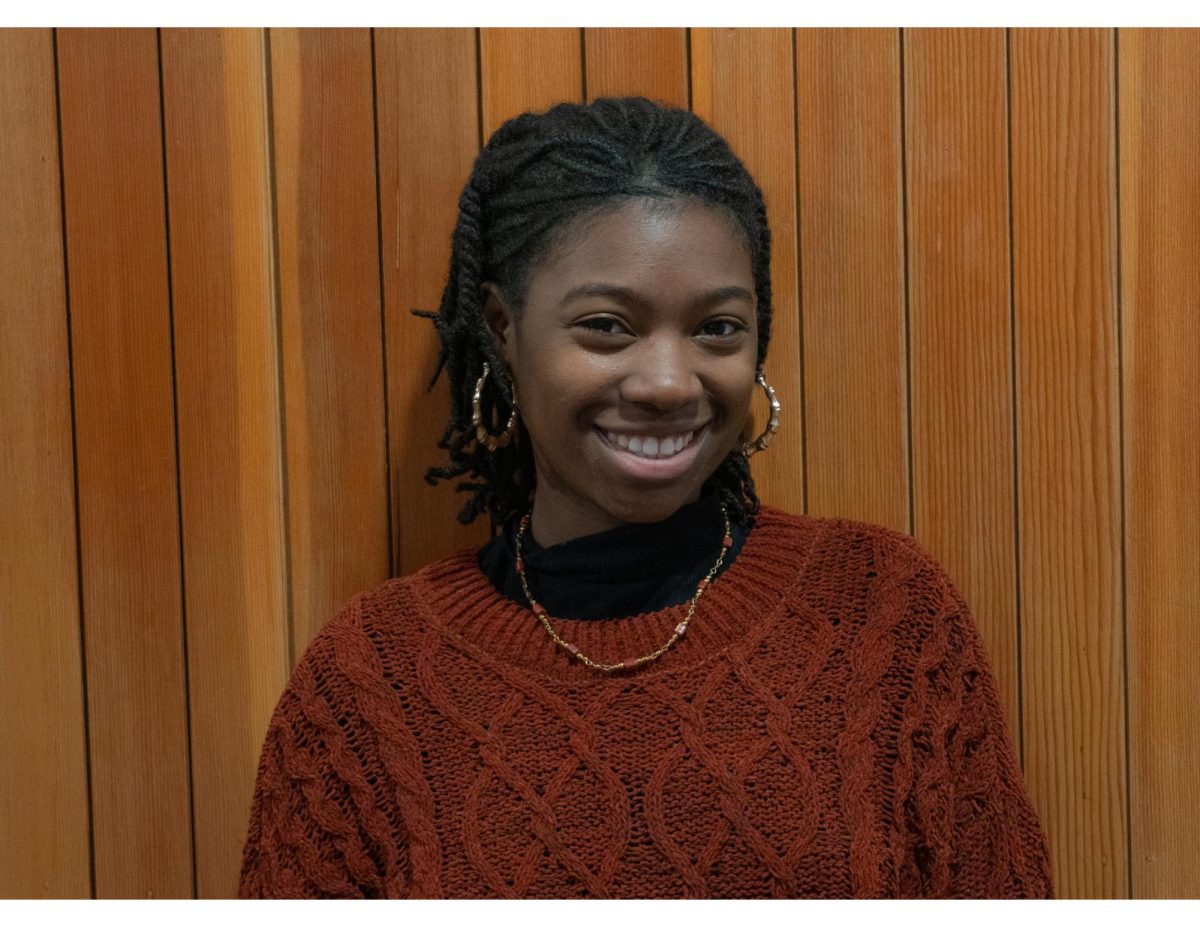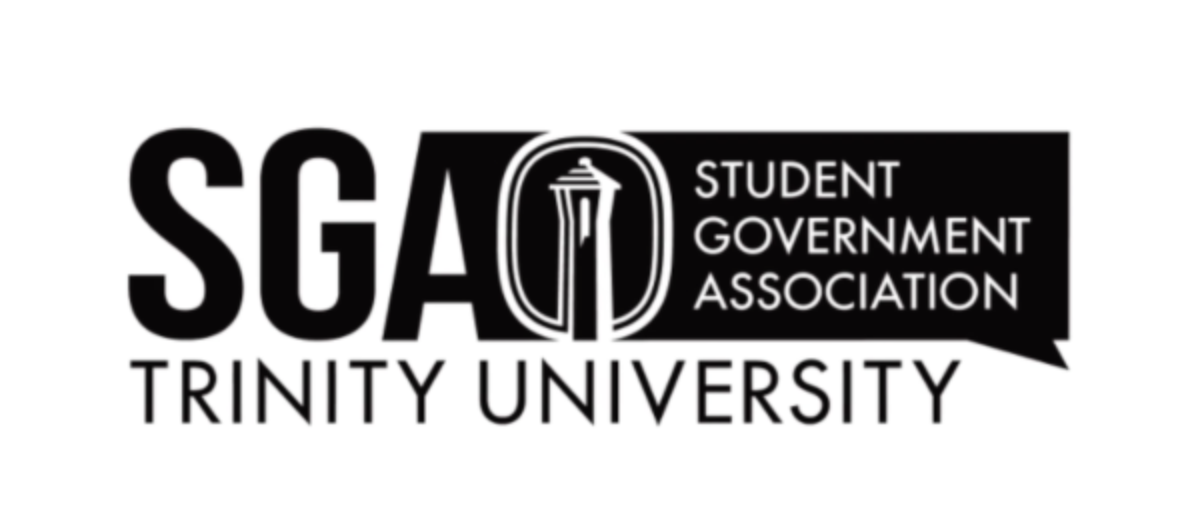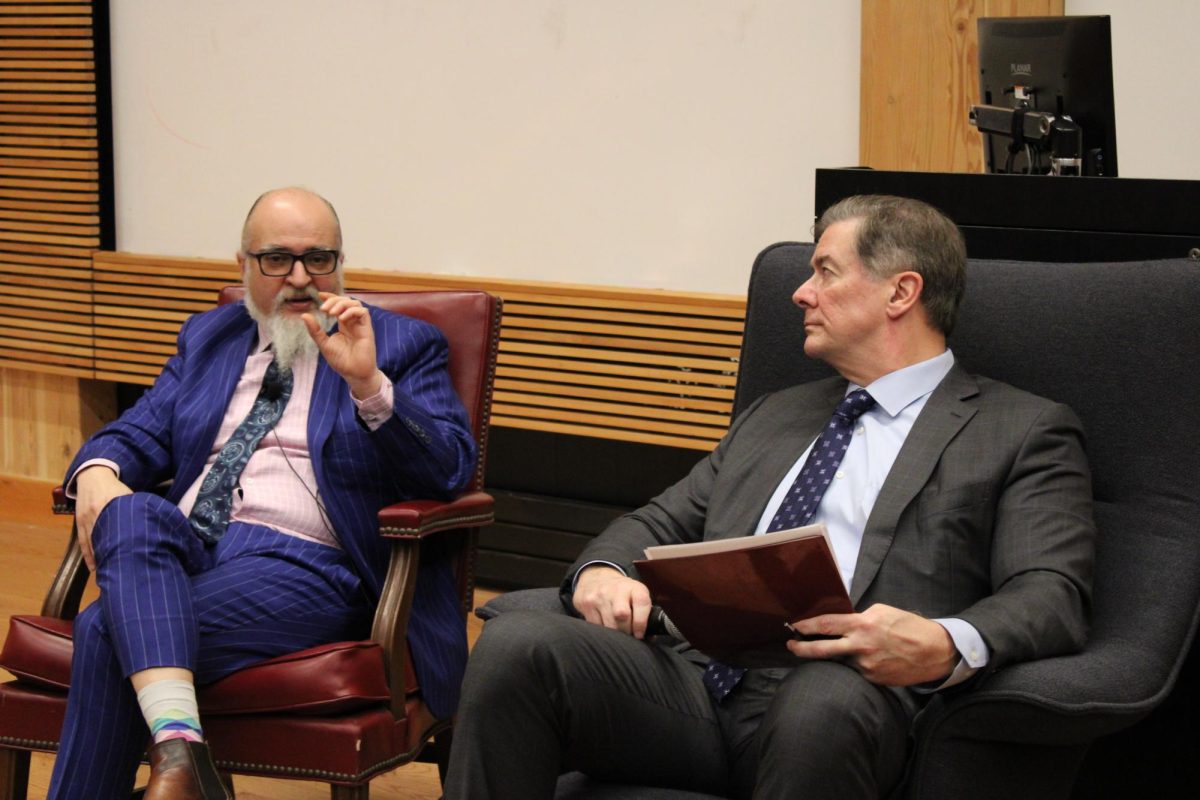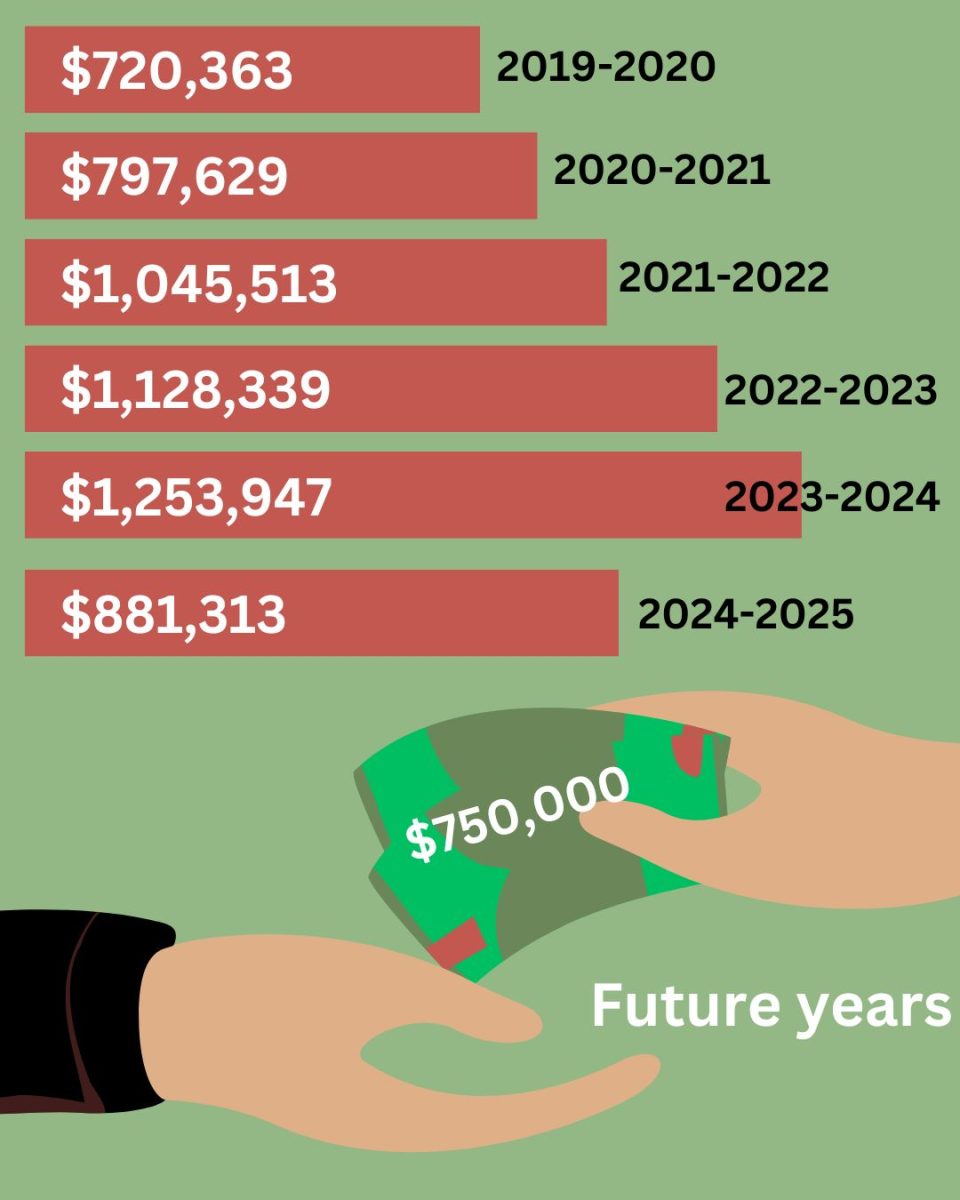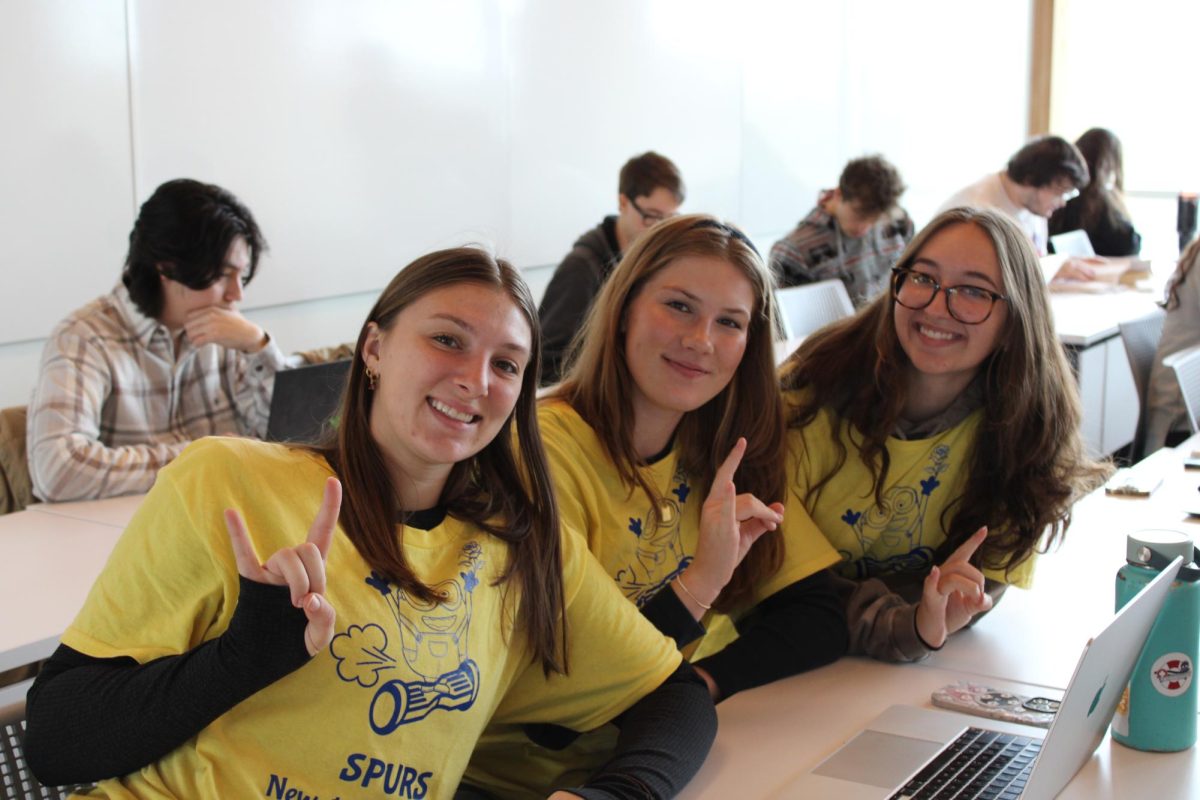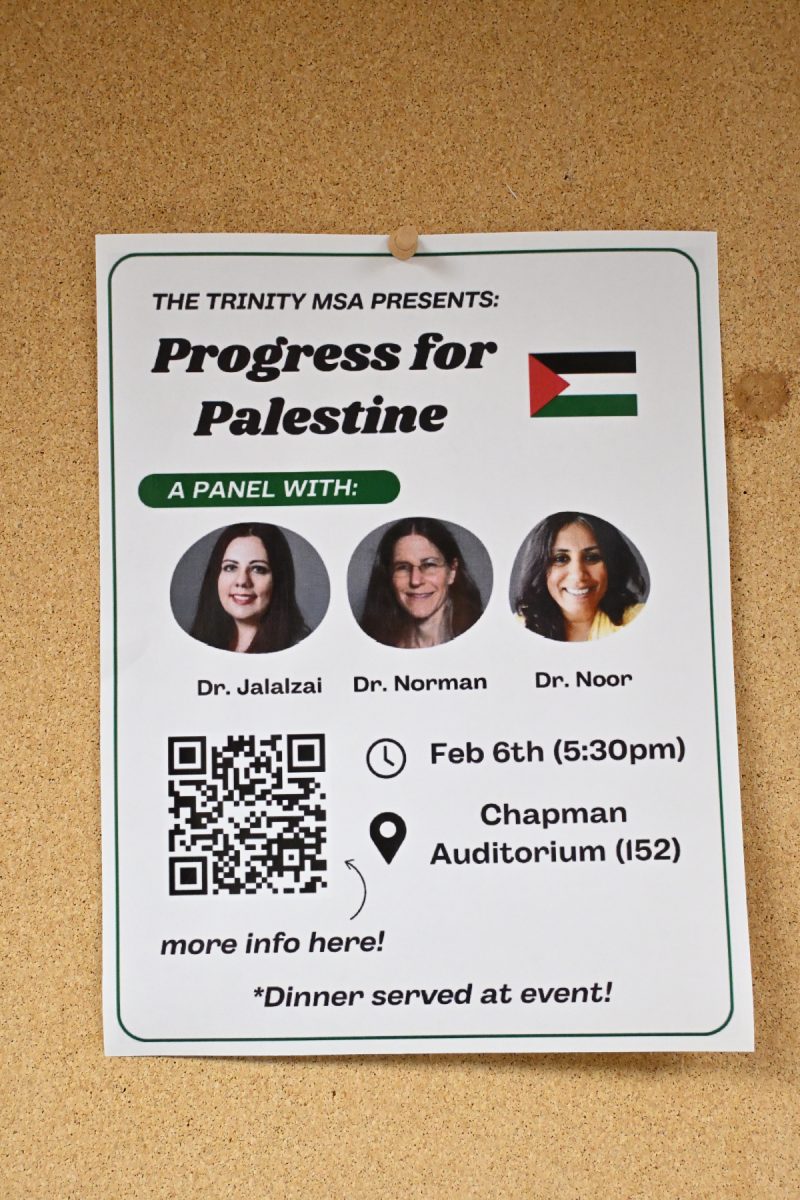By Alexandra Uri
By Emily Elliot
Almost 20 years ago Rachel Pineda, then a sophomore communication major from a small town in Texas, thought she was getting the internship of a lifetime with an independent filmmaker. She had always had a passion for acting and was involved with theater and the campus television station immediately after arriving to Trinity.
What happened to Rachel after taking the internship is something that happens to too many students.
It was during Valentine’s Day weekend in 1998 that Pineda’s mentor took her to a strip club, got her drunk, took her back to his house and raped her.
“Somehow he ended up behind me, and I tried to crawl away, and I said, “˜Don’t! Stop!’ and he whispered in my ear, “˜Everything will be okay.’ And then he raped me. He had sex with me from behind and it was awful, I kept trying to crawl away, and I passed out. I don’t remember anything after that. I woke up periodically, and he was still having sex with me,” Pineda said.
Pineda became trapped in the relationship with the significantly older man for about a year. She didn’t have the words to describe what was being done to her at the time, but it was like she was being forced to be with him for over a year.
“I ended up dating him for a year and a half afterwards; looking back now, I was some sort of sex slave. He had me fly to places to go meet him, and we’d have dinner, alcohol, a massage in his bedroom and then we’re having sex. Every single time, it was like that, the same repetitive pattern. At the time, I wasn’t thinking; I was being groomed for him,” Pineda said.
Rachel felt isolated; in addition to her advisor being on sabbatical and her roommate frequently being out of their room, no one on Trinity’s campus ever explained to her what rape or sexual assault was.
“There was a safer sex forum, and I won, in some sort of raffle, a strip of free condoms. So Trinity is all about safer sex, and here’s some condoms, but by that point, I had still never heard of rape or sexual assault,” Pineda said.
In the nearly two decades that have passed since Pineda’s graduation, the way sexual assault is approached at Trinity has changed; signs in every bathroom on campus instruct individuals what to do if they are raped or sexually assaulted, and the school frequently hosts various forums regarding sexual assaults on campus.
In the spring of 2014, Trinity also started the Coalition for Respect in order to create a broader campus-wide approach to sexual assault policies.
“We started the Coalition to really try to mobilize broad campus support from students, faculty and staff on this topic and to give people a forum where they can come to and voice their frustrations and opinions. It gives us a place where we can vet our policies more and where we can do more educational programs. You know, I think that has increased institutionally the presence [of sexual assault awareness],” said David Tuttle, dean of students.
According Timothy O’Sullivan, assistant vice president for academic affairs and Trinity’s Title IX coordinator, many of the changes to Trinity’s policy were spurred on by the “Dear Colleague” letter released by the Office of Civil Rights in 2011. However, the university had already started working on their policy before the letter was released.
“Even as an outsider, before I took on this role, it had been my impression that greater and greater efforts had been put into fine-tuning our sexual misconduct policies. Part of this, of course, was in response to the “˜Dear Colleague’ letter of 2011, issued by the Office of Civil Rights. But from my understanding, we started a lot of these policies before that letter was issued. In other words, I think that letter was issued as a part of a national effort to bring a renewed interest in how colleges handle this issue,” O’Sullivan said.
A lot of the changes to Trinity’s policy are about the approach the university takes in dealing with sexual misconduct cases.
“I think probably the biggest thing we’ve changed is we’ve gone to this investigator model. Before, it used to go through this conduct-board model or an administrator, the dean of students. I think that we have approximately 20 trained investigators out there that serve as advocates and hearing panel members when they’re not serving as investigators,” Tuttle said. “I think that has added, at least for me, some sense of community responsibility for handling sexual assault cases.”
Tuttle believes this has allowed for a more impartial approach to cases of sexual misconduct.
“Now it’s a very thorough process of trying to uncover evidence, and that can be a number of different things whether it’s direct testimony, direct evidence or indirect evidence, outcry activity, medical reports and different things like that. On a fairness standpoint, I think it’s a better process and more thorough and less impressionistic. It’s more about what we know and less about how we feel or think,” Tuttle said.
Furthermore, Trinity has worked to create a policy that is clear and practical. Tuttle believes that this is what sets Trinity’s policy apart from other university’s sexual misconduct policies.
“When you do look at some policies from other schools like the University of North Carolina, who is considered to have a really strong policy, or the University of Virginia, their policies are extremely complex. They’re written in legalistic terms and are extremely lengthy,” Tuttle said. “One of the things that has been important to me, and I think institutionally, is that we have a policy that is accessible in terms of language. So that people can read it, it’s plain-spoken, it’s clear and succinct, and that our policies and procedures are transparent. Those are the things that guide the work that we do on our policies.”
Furthermore, through the Coalition for Respect, the university actively strives to keep their sexual misconduct policy up to date with what the Trinity community feels is important.
“We make revisions every year and a lot of those revisions happen as a result of conversations, particularly held amongst investigators given their experience with their investigations and their hearings, but also conversations with the Coalition for Respect and other campus constituencies,” O’Sullivan said.
Even though Trinity has worked to achieve an impartial process of handling cases of sexual misconduct, people who have been through the system can still feel that not enough was done for them.
“In a student versus student case, people will walk away feeling dissatisfied on both sides, which is hard and frustrating,” Tuttle said.
Some students have echoed this sentiment. Senior theater major Katie Farrell has been talking with sexual assault survivors on Trinity’s campus over the past year for her theater capstone project. Farrell, who is also a sexual assault survivor, has used the project to help recover from her assault by interacting with other survivors.
“I come to theater as a whole for a sense of community. I kind of, in the process of healing after my own assault, want to own that place in society and make sure that other people like me are getting their voices heard,” Farrell said. “But, also, on the other side I wanted to meet people who are going through this as well because I think that’s really important.”
Farrell’s capstone is an interview-based play that is based on some of the experiences of the Trinity students who are victims of sexual assault she’s spoken with. As the compiler of these interviews, Farrell has felt both touched and troubled while reviewing the various stories she’s heard.
“It’s one of those things where it breaks your heart and makes you feel amazing and valued at the same time to just know that there are other people out there and you’re not the only one going through this,” Farrell said. “There are people who want to listen to you. There are people who want to learn how to support you better and just knowing and constantly reminding yourself that there are these resources and there are those people and that care is out there is just a crucial part of healing. I don’t think I would get by without it.”
Through her interviews Farrell has gotten a look at how the Trinity community talks about issues surrounding sexual misconduct. Overall, she believes that it is important for campus to continue to have conversations about the issue.
“I think it’s really progressing in the right direction “¦ In a lot of ways I do think all of the speakers that we bring in during orientation are really good and that needs to continue. I know that working with the Coalition for Respect they’re always interested in evolving their curriculum and working with victims of sexual assault. I think that’s really good,” Farrell said.
Based on what students have told her, Farrell believes that, for the most part, students don’t really know about Trinity’s sexual misconduct policy and those who do have mixed feelings about it.
“You have other people who say things like, this happened to me, I went through the system at Trinity and the person who assaulted me got off and is still walking around. I’ve seen a fair amount of those cases,” Farrell said. “I’ve seen even fewer where it was like Trinity handled my case really well and it was great. So you see a little bit of everything but I would say the vast majority kind of have no concept and kind of haven’t even started to really think about it.”
Through her interviews Farrell learned that many students don’t report their assaults. Junior history major, Jillian Howell, is one such student on Trinity’s campus who didn’t report her sexual assault.
“I chose not to report my sexual assault because I was afraid that I would not gain justice from the process, but be further violated. I have heard too many times about women consenting to engaging with their assailant, changing their mind during, being forced to continue or not allowed to leave, then when they report their stories they’re either not believed or told that they “˜won’t get anything’ from pressing charges,” Howell said.
Farrell found that many students who don’t report their assaults do so for reasons similar to Howell.
“On Trinity’s campus it’s only ever for two reasons I’ve found. They didn’t even know where to go or what to do because they’ve never heard anyone talk about it. The other reason is that their friends told them, no don’t report it, such and such thing happened to me and then nightmare stories get passed around,” Farrell said.
Farrell doesn’t blame the administration. She believes that it should be on the students to create a dialogue around the issue of sexual assault on campus.
“The administration can only do so much and then it falls on us, the students who are the majority of the population at Trinity, to make sure we’re having those conversations in the hallways and in our dorm rooms and here,” Farrell said.
Farrell believes that starting and continuing conversations is the best way to create an environment that is designed to help sexual assault survivors.
“I think we just need to keep talking about it as students, and not just in the context of how do we prevent it. I think we need to have that difficult realization that there is evil in the world and this is not something that we’re ever going to be able to stop completely. However, we all can do something to help heal,” Farrell said. “I think education on how to help survivors, even if you don’t have that experience yourself, is crucial and should be the direction that we need.”
O’Sullivan believes that the Coalition for Respect provides a venue for students with concerns about Trinity’s sexual misconduct to have their thoughts heard.
“I would encourage students to take part in the Coalition for Respect. There are lots of different ways that students can get involved with this issue so that’s not the only avenue. But that’s a great opportunity to get around a table with a lot of the stakeholders in these issues and people who are actually on the ground and running these investigations,” O’Sullivan said.
Farrell believes that it doesn’t matter where the conversations take place as long they’re taking place at all.
“It happens to all of us by all of us and it’s a conversation all of us have to have,” Farrell said.
Farrell plans on continuing to develop her play after her capstone ends, and hopes to interview other victims about their experiences with handling their sexual assault cases. If you are interested in talking with Farrell, contact her at kfarrell@trinity.edu.
If you have been assaulted there are many resources on and off Trinity’s campus. You can contact TUPD, Health Services, the dean of students and the San Antonio Rape Crisis Center. The contact information for these resources is below.

